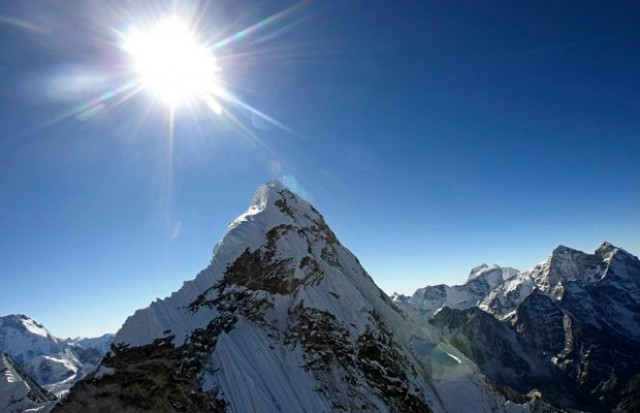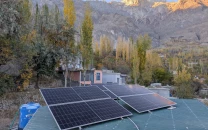Sustainable development goals: Environmentalists stress significance of mountain preservation
Demand inclusion of subject at upcoming SDG open working group session in New York.

“It is discouraging that mountains have disappeared from the text of the document on SDGs,” said Amin Baig, a veteran development expert in Gilgit, on Wednesday.
PHOTO: AFP/FILE
Environmental experts have voiced concern over lack of importance given to mountains in the global sustainable development goals (SDG) and urged negotiators and governments to urgently raise the issue at the upcoming session of the open working group on SDGs in New York.
One of the main outcomes of the Rio+20 United Nations (UN) conference on sustainable development was member states agreeing to launch a process to develop a set of SDGs which will build on the Millennium Development Goals and converge with the post-2015 development agenda.

Rio+20 took place in Rio de Janeiro, Brazil in June 2012 – twenty years after the landmark 1992 Earth Summit in Rio de Janeiro.
“It is discouraging that mountains have disappeared from the text of the document on SDGs,” said Amin Baig, a veteran development expert in Gilgit, on Wednesday.
“The role of mountains is critical in many ways and downplaying it is equal to leaving mountain communities unattended,” said the expert who has represented G-B at several international forums.
The issue has equally worried experts worldwide. “Despite our collective efforts, mountains have almost disappeared from the text of the agreement,” said Dr Thomas Hofer, who is associated with the UN’s Food and Agriculture Organization in Rome. In an email sent to journalists across the world, Hofer said, “Please ask your national negotiators in New York to speak out in support of mountains during the next session, which starts on June 16, 2014.”
“We believe that having mountains mentioned in at least those goals for which mountains have a strategic and universal importance – water, energy, terrestrial ecosystems and biodiversity – would better support mountain development in the post-2015 development agenda,” he states in the email.
Gilgit-Baltistan is home to some of the world’s highest mountain ranges, such as the Karakoram and the Western Himalayas. Among the highest mountains are K2 (Mount Godwin-Austen) and Nanga Parbat, one of the most feared mountain in the world.
According to the UN, covering around 27% of the earth’s land surface, mountains not only provide sustenance and wellbeing to 720 million mountain people around the world but indirectly benefit billions more living downstream.
Published in The Express Tribune, June 12th, 2014.


















COMMENTS
Comments are moderated and generally will be posted if they are on-topic and not abusive.
For more information, please see our Comments FAQ